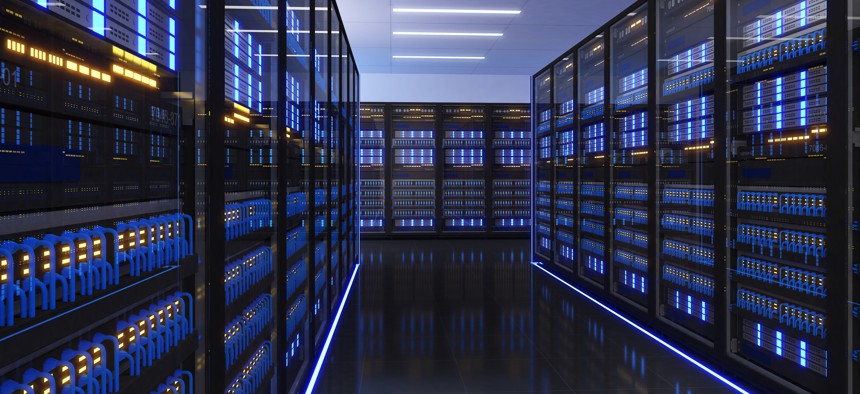County puts ‘Band-Aids’ on power shortage pain

Oselote/Getty Images
The electric utility serving Loudoun County, Virginia, cannot power new data centers until 2026, leaving the county looking for temporary solutions.
With more than 26 million square feet of real estate dedicated to data center operations and another 4 million under construction, Loudoun County, Virginia, is looking to maintain itself as “Data Center Alley.”
But those new data centers could find themselves under significant power constraints until 2026, after local electric utility Dominion Power said in July that its high-voltage power lines may not be able to transmit enough power to meet demand. The utility softened its approach in September saying it had resumed providing new connections to data center customers, albeit less than expected, and warning that the power issues may continue for four years.
It has left local officials in search of what Buddy Rizer, Loudoun County’s executive director for economic development, described as “Band-Aids” to alleviate the problem. That includes building more substations and upgrading existing lines so they can transmit more power, while at the same time working with the state government and Dominion on longer-term solutions.
“The reality is, until more significant infrastructure is delivered in 2026, we're going to be behind the 8-ball for a little while,” Rizer said.
Before long, Rizer said the county will need at least one 500-kilovolt line in its south, and another likely from the north to deal with the increased demand, although he said the latter line is “probably a 2028 project.”
The power issue that Loudoun County faces has reignited debate over the amount of energy that data centers consume. But Rizer said companies that rely on data centers, which includes the biggest technology companies in the world, are “really leading the charge” on the transition to renewable energy. They are installing solar panels at their facilities and investing in better technology that needs less cooling and so consumes less energy.
“You can't get away from the fact that they use a lot of energy, there's just no question about it,” Rizer said. “But every day, we're looking at ways to reduce that to be more efficient, to look at energy storage and renewables. It's a process, but one that I think that all of us are committed to.”
Rizer said it is also incumbent on local governments to take data center emissions seriously and ensure companies that wish to build in their communities have a plan to be environmentally friendly. Otherwise, he said, those companies will be “disqualified.”






